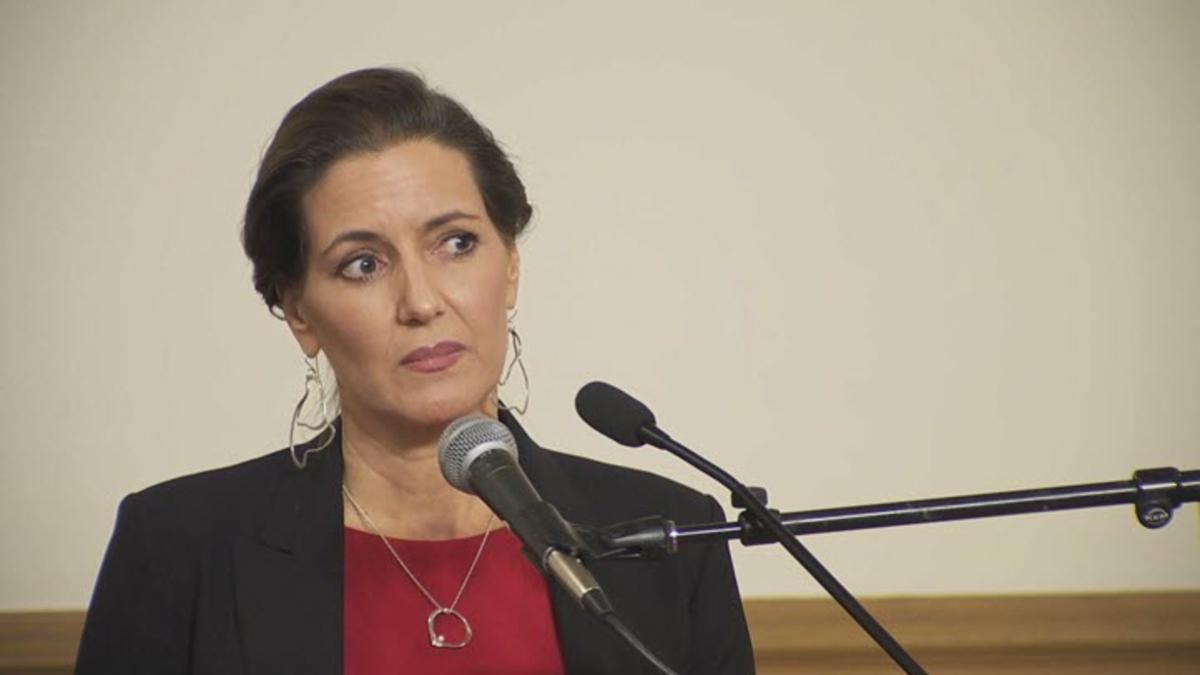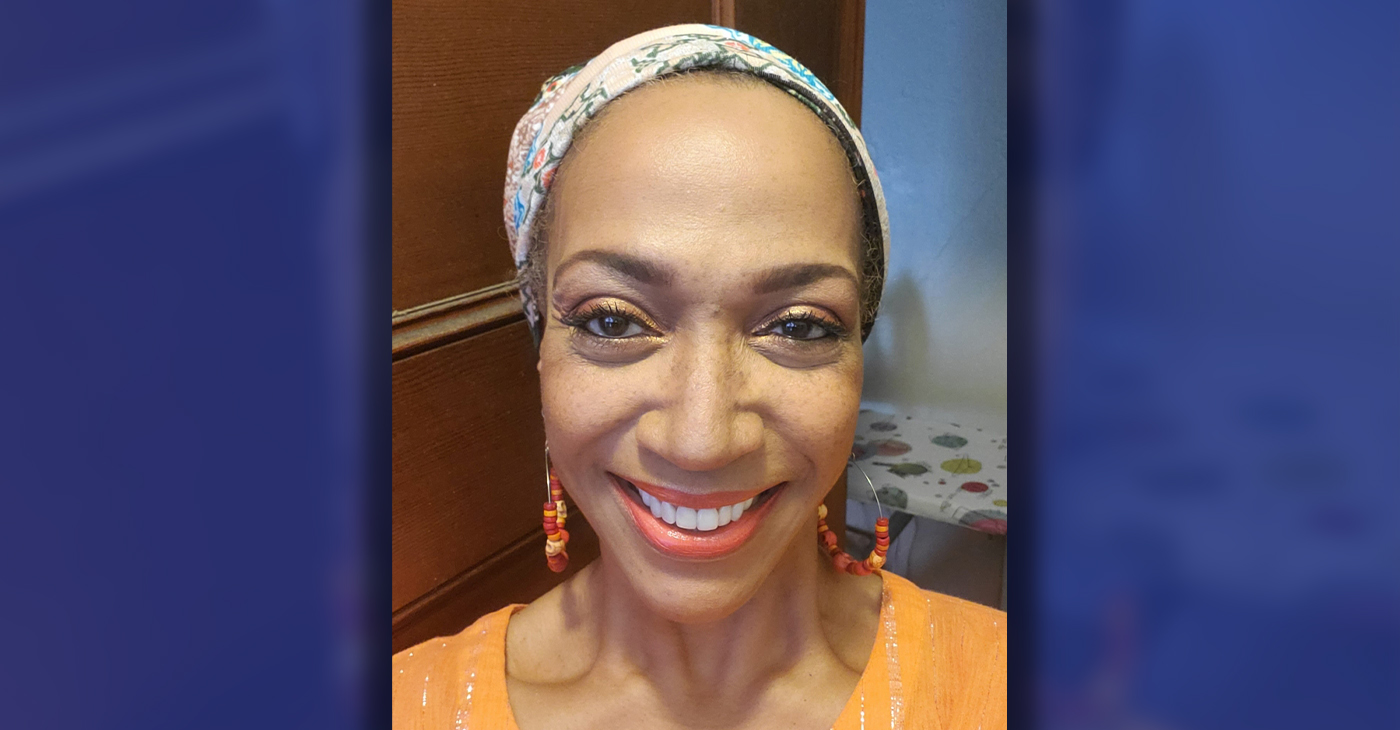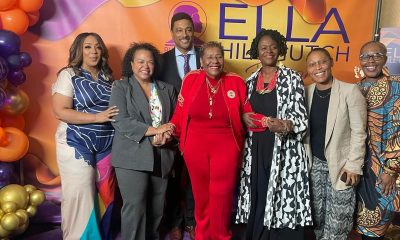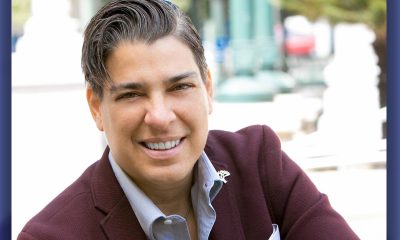Community
Black Coalition Sends Open Letter to Mayor Schaaf Demanding Answers on OPD Actions

We, the undersigned, are concerned by your lack of control over the Oakland Police Department (OPD) and the resulting impact on the African American community. The Department’s continuing lack of respect for the African American community as evidenced by Dr. Jennifer Eberhardt’s recent report, and OPD’s failure to address systemic racial inequities in policing policies after 14 years of a Negotiated Settlement Agreement (NSA) is extremely problematic.
Historically, Oakland’s African American communities have been besieged with crime. Residents are treated as suspects when we are victims. We are arrested at disproportionate rates. Far too often we have had to suffer the indignities of officers who are less respectful; and we have tolerated elected and appointed officials who seem incapable or unwilling to meaningfully address these longstanding issues. Our tolerance has worn thin. We don’t want any more apologies; protestations of accountability; or good intentions. Oakland’s African American community demands strategic engagement, transparent actions aligned to firm deadlines and the elimination of excuses for inaction.
The recent scandals, cover-ups; and reports set forth below have severely tarnished OPD’s reputation and image throughout the community. Our confidence in you and the Department have been severely diminished. We respectfully seek answers to the questions below to begin the process to repair the relationship with our community, and to restore our confidence and trust.
Stanford Report issued March 26, 2017, Demonstrating Lack of Respectfulness of African Americans by OPD Officers.
- Please specify what tangible steps will be taken to address the issues raised by Dr. Eberhardt’s recently released report.
- The timeline for implementation.
- The methods to evaluate success.
Recent Las Vegas Street/Muhammad Mosque Incidents.
The Las Vegas Street incident and the recent Muhammad Mosque incident are eerily similar. In both, a white man terrorized African Americans unfettered while OPD responded with great patience and tolerance for the suspect. In the Las Vegas incident despite the shooting his weapon at a homeless African American gentleman, OPD waited a week before taking definitive action. At the Mosque OPD allowed the suspect to remain in his apartment unfettered for two hours.
Rather than exercise procedural justice with the victims, the members of the Mosque, OPD exercised procedural justice with the white suspect.
- Please indicate all policy changes and corrective steps taken after the Las Vegas incident to address OPD’s inadequate response. Please provide copies. If no action was taken, why explain why not.
- Please explain why these procedures were not implemented in the recent Mosque incident.
- Please provide a written critical incident review/after action report for both incidents.
- Please provide copies of all policies and procedures utilized by officers responding to both incidents.
- Provide a copy of the policy regarding notification of Council/Mayor.
Recent Promotions
The recent expedited promotion of Assistant Chief John Lois and Captain Roland Holmgren are troubling at best. Both gentlemen are implicated in public records, the Swanson report, and various media outlets in conduct which calls into question their supervisory abilities, leadership, judgement, and compliance with the requirements of the negotiated settlement agreement. Given this cloud, it would have been prudent to complete any investigation prior to their promotion. Unfortunately, the public is now left with the assumption that you either don’t care about these potential transgressions, or that you condone their behavior because in the face of this information, and absent a transparent investigation which completely exonerates them, you promoted them.
- Please advise whether you will conduct a transparent investigation of the allegations against these individuals.
Swanson Report Uncovers a Culture of Cover-Ups.
It appears that none of the officers or supervisors who observed the misconduct in the Guap matter were ever investigated, and if appropriate, disciplined by the Oakland Police Department. This is true even though they failed to report the misconduct, stop the misconduct, or discipline their subordinates for the misconduct.=
- Please prepare a list of every incident in the Swanson report that OPD believes constituted potential misconduct and/or deficient performance and procedures and investigate and/or make inquiries accordingly.
- Please state whether any allegation of potential misconduct referenced above that was investigated was sustained or not sustained.
- Please state what was the discipline that was imposed regarding any allegation that was sustained.
- Please state whether any of the incidents that constituted potential misconduct and/or deficient performance and procedure was not investigated and give the reason for the failure to investigate said incidents/behavior.
- Please state, for each incident that constituted potential misconduct and/or deficient performance and procedure the date of the occurrence and the 3304 date.
- if you have determined that any of the incidents/behavior referenced above that cannot be investigated because of the deadlines imposed by Government Code 3304 or for some other reason please set forth the reason.
- Please identify the person(s) most responsible for any of the incidents/behavior that should have been investigated and were not investigated.
- Please state whether the person(s) identified in Number 6 above will be subject to discipline and if so, whether it will be conducted in a timely manner and who will be responsible for the investigation.
The community demands and deserves an effective, respectful, and accountable police force. The issues raised above must be fully addressed as they have an adverse effect on already tenuous community inter-actions with the Department. We look forward to your thorough response. Please provide responses to each question within 15 days to the address listed above. Upon receipt of your responses we look forward to meeting with you to determine next steps.
Respectfully,
- Desley Brooks, Oakland City Council, District 6
- Keith Carson, Alameda County Board of Supervisors, District 5
- Darleen Brooks, Former Member, Democratic Central Committee
- Aaron Goodwin, Former Commissioner, Alameda County Oakland Coliseum JPA
- Frank Tucker, Former President, 100 Black Men
- Jumoke Hinton Hodge. BOE Director District3 OUSD
- Bishop Keith Clark, Word Assembly of Churches
- Rev. Dr. Harold R. Mayberry, Senior Pastor, First A.M.E. Church Oakland
- Rev. L. J. Jennings, Senior Pastor, Kingdom Builders Christian Fellowship
- Rev. Dr. Gerald Agee, Friendship Christian Center
- Rev. Dr. Ambrose Carroll, St., Church By The Side Of The Road
- Rev. Raymond E. Lankford, Healthy Communities, Inc.
- Rev. Dr. Lawrence Van Hook, Pastor, Community Church
- Rev. Brondon Reems, Pastor, Center of Hope Community Church
- Rev. Maria Reems, Pastor, Center of Hope Community Church
- D’Wayne Wiggins, Internationally Known Recording Artist, Toni, Tony, Tone
- Siri Brown, Ph.D. Vice Chancellor of Academic Affairs, Peralta Community College District
- Michelle Hailey, Real Estate Agent
- Assata Olugbala, Community Advocate
- Elena Serrano, Member, Eastside Arts Alliance
- Candice Elder, East Oakland Collective
- Tony Coleman, Bikes 4 Life
- Toni Cook, Former Director, BOE Oakland Unified School District
- Dr. Lynn Dodd, Administrator, Educational Leadership
- Pamela Price, Attorney
- Carroll Fife, Director, Community Advocate
- Nehanda Imara, Community Advocate
- Gus Newport, Former Mayor, City of Berkeley
- Simone Delucchi, Program Coordinator
- Tonya Love, Community Advocate
- Monetta O. Gilbert, Community Member
- Ryane Yarborough, Community Member
- Jiayu He, Community Member
- Martinet Phan, Community Member
- Simone Thelemaque, President, BWOPA, Oakland/Berkeley Chapter
- Charles Washington, Community Member
Sign the petition today.
Activism
Books for Ghana
We effectively facilitated cross-continent community building! We met the call and provided 400 books for ASC’s students at the call of the Minister of Education. We supported the work of a new African writer whose breakout novel is an action-packed depiction of a young woman steeped in Ghanaian culture who travels to the USA for college, all the while experiencing the twists, turns, and uncertainties that life brings.

By Min. Rauna Thurston, Chief Mpuntuhene Afua Ewusiwa I
My travels to Afrika began in June 2022, on a tour led by Prof. Manu Ampim, Director of the organization Advancing The Research. I was scheduled to become an ordained Minister by Wo’se Community of the Sacred African Way. It was vital that my feet touch the soil of Kemet and my spirit connect with the continent’s people before ordination.
Since 2022, I’ve made six trips to Afrika. During my travels, I became a benefactor to Abeadze State College (ASC) in Abeadze Dominase, Ghana, originally founded by Daasebre Kwebu Ewusi VII, Paramount Chief of Abeadze Traditional Area and now run by the government. The students there were having trouble with English courses, which are mandatory. The Ghanaian Minister of Education endorsed a novel written by 18-year-old female Ghanaian first-time writer, Nhyira Esaaba Essel, titled Black Queen Sceptre. The idea was that if the students had something more interesting to read, it would evoke a passion for reading; this seemed reasonable to me. Offer students something exciting and imaginative, combined with instructors committed to their success and this could work.
The challenge is how to acquire 800 books?!
I was finishing another project for ASC, so my cash was thin and I was devoid of time to apply for annual grants. I sat on my porch in West Oakland, as I often do, when I’m feeling for and connecting to my ancestors. On quiet nights, I reminisce about the neighborhood I grew up in. Across the street from my house was the house that my Godfather, Baba Dr. Wade Nobles and family lived in, which later became The Institute for the Advanced Study of Black Family Life & Culture (IASBFLC). Then, it came to me…ancestors invited me to reach out to The Association of Black Psychologists – Bay Area Chapter (ABPsi-Bay Area)! It was a long shot but worth it!
I was granted an audience with the local ABPsi Board, who ultimately approved funding for the book project with a stipulation that the Board read the book and a request to subsequently offer input as to how the book would be implemented at ASC. In this moment, my memory jet set to my first ABPsi convention around 2002, while working for IASBFLC. Returning to the present, I thought, “They like to think because it feels good, and then, they talk about what to do about what they think about.” I’m doomed.
However, I came to understand why reading the book and offering suggestions for implementation were essential. In short: ABPsi is an organization that operates from the aspirational principles of Ma’at with aims of liberating the Afrikan Mind, empowering the Afrikan character, and enlivening: illuminating the Afrikan spirit. Their request resulted in a rollout of 400 books in a pair-share system. Students checked out books in pairs, thereby reducing our bottom line to half of the original cost because we purchased 50% fewer units. This nuance promoted an environment of Ujima (collective work & responsibility) and traditional Afrikan principles of cooperation and interdependence. The student’s collaborative approach encouraged shared responsibility, not only for the physical book but for each other’s success. This concept was Dr. Lawford Goddard’s, approved by the Board, with Dr. Patricia “Karabo” Nunley at the helm.
We effectively facilitated cross-continent community building! We met the call and provided 400 books for ASC’s students at the call of the Minister of Education. We supported the work of a new African writer whose breakout novel is an action-packed depiction of a young woman steeped in Ghanaian culture who travels to the USA for college, all the while experiencing the twists, turns, and uncertainties that life brings. (A collectible novel for all ages). A proposed future phase of this collaborative project is for ASC students to exchange reflective essays on Black Queen Sceptre with ABPsi Bay Area members.
We got into good trouble. To order Black Queen Sceptre, email esselewurama14@gmail.com.
I became an ordained Minister upon returning from my initial pilgrimage to Afrika. Who would have imagined that my travels to Afrika would culminate in me becoming a citizen of Sierra Leone and recently being named a Chief Mpuntuhene under Daasebre Kwebu Ewusi VII, Paramount Chief of Abeadze Traditional Area in Ghana, where I envision continued collaborations.
Min. Rauna/Chief Mpuntuhene is a member of ABPsi Bay Area, a healing resource committed to providing the Post Newspaper readership with monthly discussions about critical issues in Black Mental Health, Wealth & Wellness. Readers are welcome to join us at our monthly chapter meetings every 3rd Saturday via Zoom and contact us at bayareaabpsi@gmail.com.
Arts and Culture
In ‘Affrilachia: Testimonies,’ Puts Blacks in Appalacia on the Map

By Terri Schlichenmeyer
The Bookworm Sez
An average oak tree is bigger around than two people together can reach.
That mighty tree starts out with an acorn the size of a nickel, ultimately growing to some 80 feet tall, with a canopy of a hundred feet or more across.
And like the new book, “Affrilachia” by Chris Aluka Berry (with Kelly Elaine Navies and Maia A. Surdam), its roots spread wide and wider.
Affriclachia is a term a Kentucky poet coined in the 1990s referring to the Black communities in Appalachia who are similarly referred to as Affrilachians.
In 2016, “on a foggy Sunday morning in March,” Berry visited Affrilachia for the first time by going the Mount Zion AME Zion Church in Cullowhee, North Carolina. The congregation was tiny; just a handful of people were there that day, but a pair of siblings stood out to him.
According to Berry, Ann Rogers and Mae Louise Allen lived on opposite sides of town, and neither had a driver’s license. He surmised that church was the only time the elderly sisters were together then, but their devotion to one another was clear.
As the service ended, he asked Allen if he could visit her. Was she willing to talk about her life in the Appalachians, her parents, her town?
She was, and arrangements were made, but before Barry could get back to Cullowhee, he learned that Allen had died. Saddened, he wondered how many stories are lost each day in mountain communities where African Americans have lived for more than a century.
“I couldn’t make photographs of the past,” he says, “but I could document the people and places living now.”
In doing so he also offers photographs that he collected from people he met in ‘Affrilachia,’ in North Carolina, Georgia, Kentucky, and Tennessee, at a rustic “camp” that was likely created by enslaved people, at churches, and in modest houses along highways.
The people he interviewed recalled family tales and community stories of support, hardship, and home.
Says coauthor Navies, “These images shout without making a sound.”
If it’s true what they say about a picture being worth 1,000 words, then “Affrilachia,” as packed with photos as it is, is worth a million.
With that in mind, there’s not a lot of narrative inside this book, just a few poems, a small number of very brief interviews, a handful of memories passed down, and some background stories from author Berry and his co-authors. The tales are interesting but scant.
For most readers, though, that lack of narrative isn’t going to matter much. The photographs are the reason why you’d have this book.
Here are pictures of life as it was 50 years or a century ago: group photos, pictures taken of proud moments, worn pews, and happy children. Some of the modern pictures may make you wonder why they’re included, but they set a tone and tell a tale.
This is the kind of book you’ll take off the shelf, and notice something different every time you do. “Affrilachia” doesn’t contain a lot of words, but it’s a good choice when it’s time to branch out in your reading.
“Affrilachia: Testimonies,” by Chris Aluka Berry with Kelly Elaine Navies and Maia A. Surdam
c.2024, University of Kentucky Press, $50.00.
Black History
Alice Parker: The Innovator Behind the Modern Gas Furnace
Born in Morristown, New Jersey, in 1895, Alice Parker lived during a time when women, especially African American women, faced significant social and systemic barriers. Despite these challenges, her contributions to home heating technology have had a lasting impact.

By Tamara Shiloh
Alice Parker was a trailblazing African American inventor whose innovative ideas forever changed how we heat our homes.
Born in Morristown, New Jersey, in 1895, Parker lived during a time when women, especially African American women, faced significant social and systemic barriers. Despite these challenges, her contributions to home heating technology have had a lasting impact.
Parker grew up in New Jersey, where winters could be brutally cold. Although little is documented about her personal life, her education played a crucial role in shaping her inventive spirit. She attended Howard University, a historically Black university in Washington, D.C., where she may have developed her interest in practical solutions to everyday challenges.
Before Parker’s invention, most homes were heated using wood or coal-burning stoves. These methods were labor-intensive, inefficient, and posed fire hazards. Furthermore, they failed to provide even heating throughout a home, leaving many rooms cold while others were uncomfortably warm.
Parker recognized the inefficiency of these heating methods and imagined a solution that would make homes more comfortable and energy-efficient during winter.
In 1919, she patented her design for a gas-powered central heating system, a groundbreaking invention. Her design used natural gas as a fuel source to distribute heat throughout a building, replacing the need for wood or coal. The system allowed for thermostatic control, enabling homeowners to regulate the temperature in their homes efficiently.
What made her invention particularly innovative was its use of ductwork, which channeled warm air to different parts of the house. This concept is a precursor to the modern central heating systems we use today.
While Parker’s design was never fully developed or mass-produced during her lifetime, her idea laid the groundwork for modern central heating systems. Her invention was ahead of its time and highlighted the potential of natural gas as a cleaner, more efficient alternative to traditional heating methods.
Parker’s patent is remarkable not only for its technical innovation but also because it was granted at a time when African Americans and women faced severe limitations in accessing patent protections and recognition for their work. Her success as an inventor during this period is a testament to her ingenuity and determination.
Parker’s legacy lives on in numerous awards and grants – most noticeably in the annual Alice H. Parker Women Leaders in Innovation Award. That distinction is given out by the New Jersey Chamber of Commerce to celebrate outstanding women innovators in Parker’s home state.
The details of Parker’s later years are as sketchy as the ones about her early life. The specific date of her death, along with the cause, are also largely unknown.
-

 California Black Media4 weeks ago
California Black Media4 weeks agoCalifornia to Offer $43.7 Million in Federal Grants to Combat Hate Crimes
-

 Black History4 weeks ago
Black History4 weeks agoEmeline King: A Trailblazer in the Automotive Industry
-

 California Black Media4 weeks ago
California Black Media4 weeks agoGov. Newsom Goes to Washington to Advocate for California Priorities
-

 California Black Media4 weeks ago
California Black Media4 weeks agoCalifornia Department of Aging Offers Free Resources for Family Caregivers in November
-

 Activism3 weeks ago
Activism3 weeks agoOakland Post: Week of November 27 – December 3, 2024
-

 Activism4 weeks ago
Activism4 weeks agoOCCUR Hosts “Faith Forward” Conference in Oakland
-

 Activism4 weeks ago
Activism4 weeks agoRichmond Seniors Still Having a Ball After 25 Years
-

 Activism2 weeks ago
Activism2 weeks agoButler, Lee Celebrate Passage of Bill to Honor Congresswoman Shirley Chisholm with Congressional Gold Medal



















































